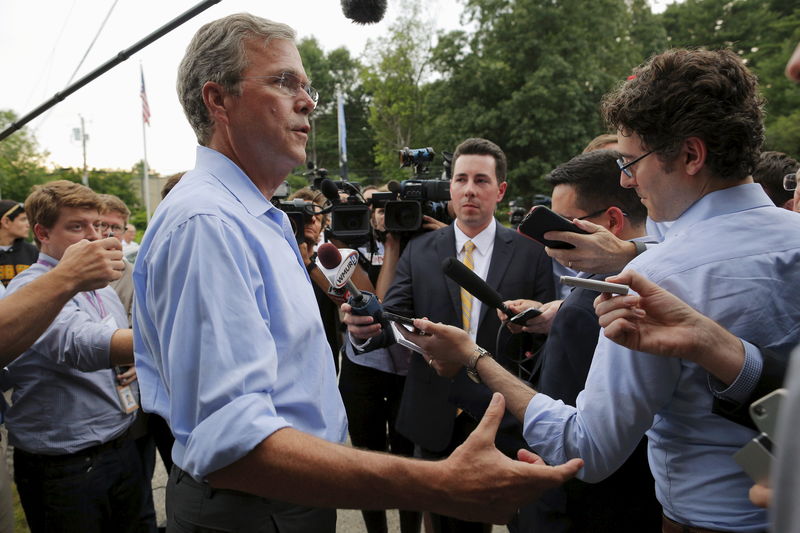By Steve Holland
HUDSON, New Hampshire (Reuters) - Republican presidential candidate Jeb Bush said Americans should have the chance to work longer hours, a remark that drew criticism from Democrats but which he said was intended to highlight that an improved U.S. economy could create more full-time jobs.
Bush told a forum hosted by the Union-Leader newspaper of Manchester that his aspiration for the country if he is elected in November 2016 would be to generate annual 4 percent economic growth "as far as the eye can see, which means we have to be a lot more productive."
"Workforce participation has to rise from its all-time modern lows," Bush said. This means, he said, "that people need to work longer hours and through their productivity gain more income for their families."
The Democratic National Committee quickly pounced on the comment as being out of touch with the concerns of ordinary Americans. Democrats were successful in making that charge against 2012 Republican nominee Mitt Romney, and would like to do the same with Bush.
"It is easily one of the most out-of-touch comments we've heard so far this cycle. Jeb Bush would not fight for the middle class as president," DNC spokeswoman Holly Shulman said in a statement.
Bush was asked about the comment by reporters after a town hall event in Hudson. He said the U.S. economy needs to grow far faster than currently to allow people to move from part-time work to full-time so they can better provide for their families.
"You can take it out of context all you want, but high sustained growth means people work 40 hours rather than 30 hours and that by our success they have disposable income for their families to decide how they want to spend it rather than standing in line and being dependent upon government," he said.
Bush frequently cites the need to improve what he calls a weak Obama economy. In June, the U.S. economy generated 223,000 jobs and the jobless rate dropped to 5.3 percent, but the reduction had much to do with people leaving the workforce. The labor participation rate dropped to 62.6 percent, the lowest since 1977, and average hourly earnings did not rise.

"If anyone is celebrating this anemic recovery, then they are totally out of touch," Bush said. "The simple fact is people are really struggling. So giving people a chance to work longer hours has got to be part of the answer. If not, you are going to see people lose hope. And that's where we are today."